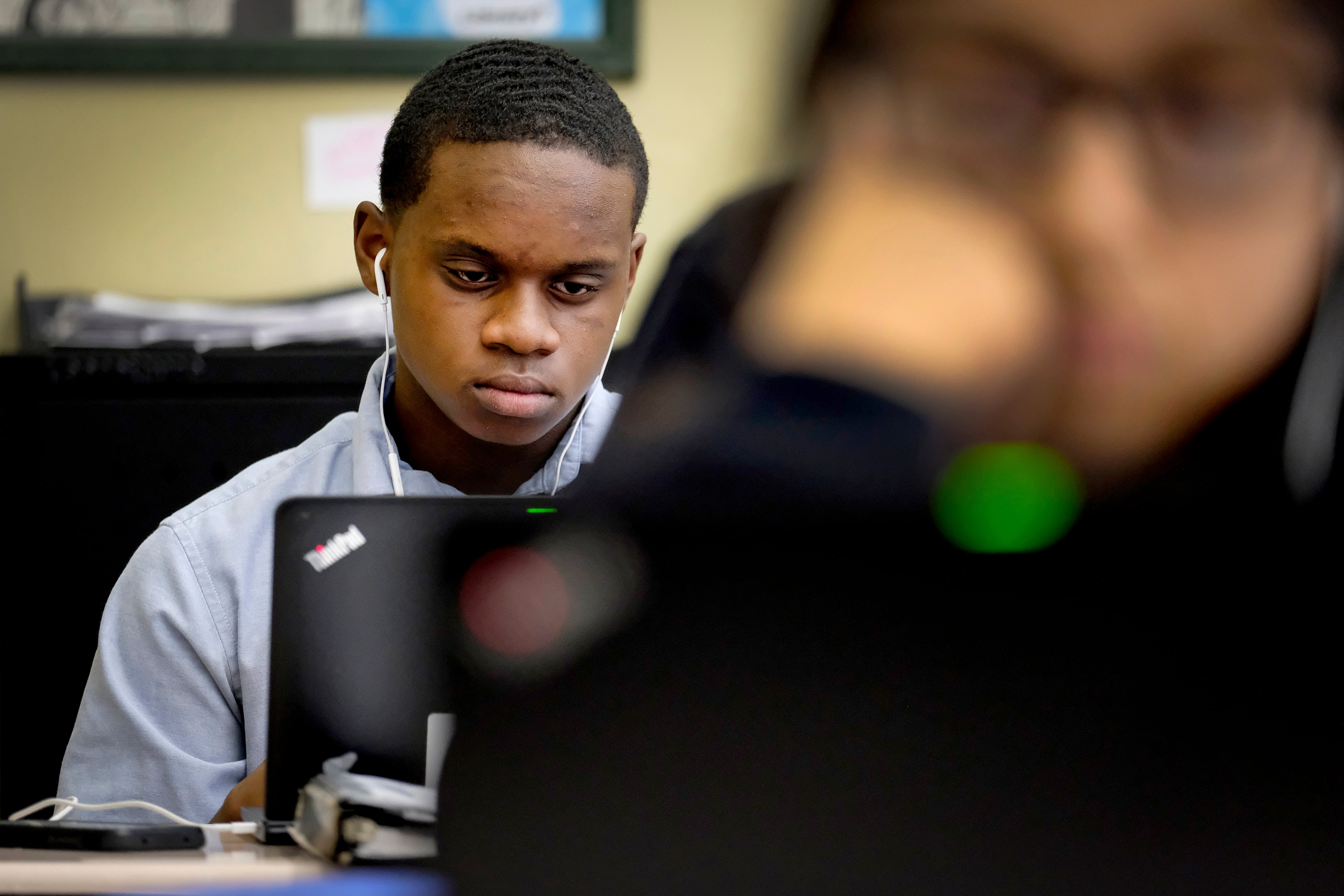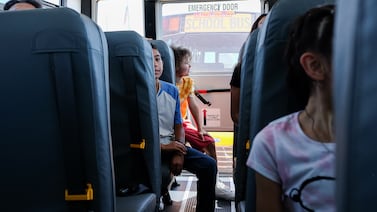Colleen Wojciechowski was surprised to learn that her youngest child was required to return to Indianapolis Public Schools this week for ILEARN testing.
The middle schooler has been learning from home since the start of the school year. So, when standardized testing season rolled around, Wojciechowski figured there would be a virtual option similar to the remote Advanced Placement tests the College Board offered high schoolers last spring. That wasn’t the case.
Indiana moved forward with the federally mandated standardized exam this week despite dozens of districts pushing to cancel it given this year’s unusual circumstances. The start of testing forced families of remote learners across Indiana, including Wojciechowski, to face a difficult decision: Do they risk their child being exposed to COVID-19 or suffering emotional trauma by returning to school after more than a year of remote learning?
“If AP could figure out how to do it from home, why couldn’t they figure out how to do it from home?” Wojciechowski asked. “We’re not staying home just because we want to bake brownies all day. We are staying home because we are trying to put one less child in the classroom. We are trying to be helpful.”
It’s unclear how many families have opted out of the test, with no statewide data available yet and the testing window open through mid-May. Typically, the number of Indiana students who sit out the test is very low. In 2019-20, the last time tests were administered, 99.6% of students in grades 3-8 took the English and math tests, according to state data.
Normally, the state ties ILEARN results to school and teacher ratings. But Indiana lawmakers are poised to pass a provision to protect schools and teachers from consequences of low scores this year. And the Indiana Department of Education has requested waivers from the federal education department to not penalize districts for having fewer than 95% of students participate in testing — a threshold likely more difficult for schools to reach as students are quarantined, sick, or opted out.
The state expects to hear back this month on its waiver requests, according to IDOE. But testing started anyway — adding to the concerns of parents considering opting out.
“We did weigh it because we care about public education,” said Marc McAleavey, whose children also attend IPS. “We care about the leaders and the administrators and the teachers. We don’t want to do anything to jeopardize the quality of education and resources available.”
The state has no formal process for opting out of ILEARN. McAleavey and his wife ultimately decided their children would not attend school for testing, and emailed their teachers and administrators.
McAleavey was concerned about COVID-19 exposure because his children aren’t old enough to be vaccinated. He also didn’t want his children’s first experience returning to the classroom to be a rigorous test. They’ve already displayed anxiety about leaving the house and going inside public buildings, he said.
“We don’t want our kids to have this negative association with going to school,” McAleavey said. “By requiring these students to come to school to take the test, we are convinced that it will have unnecessary stress and trauma and anxiety for our kids.”
Kristen Morzy, a northwest Indiana parent, also opted her children out of ILEARN, as did many of her friends. She had thought about opting out for years, but said suspending standardized tests last year proved to her that they are “completely unnecessary.”
In response to parent concerns, IDOE spokesperson Holly Lawson said it’s crucial to establish a baseline understanding of what students know, especially in English and math, to help educators analyze the impact of the disruptions in instruction caused by the pandemic.
“While assessment data is one important step in identifying and addressing students’ learning needs, we believe it’s important that schools and students are not penalized,” Lawson said in an email.
So far the state has seen “strong” participation in assessments, Lawson said. Earlier this spring 97% of third graders completed the state standardized literacy test IREAD-3.
Most Indiana school districts have returned to some form of in-person learning, with 93.6% of schools back in classrooms full time and 5.7% running hybrid schedules, according to IDOE. But that doesn’t account for the families within those districts who opted to remain remote, an option that appears especially popular among urban districts.
Fort Wayne Community Schools was among the districts pushing for ILEARN to be cancelled. Nearly a quarter of the district’s elementary students are still fully remote, as are 30% of its middle school students. Schools keep remote students separate from their in-person classmates while testing, said district spokesperson Krista Stockman. At middle schools, hybrid students will switch to virtual learning all week to create more space for social distancing.
Administrators were happy with the turnout on the first day of testing, Stockman said, although one school reported 84% participation — below the typical 95% bar.
Wojciechowski decided to have her IPS middle schooler take the tests. The family had opted to continue with remote learning largely to free up space for social distancing in crowded classrooms for students who needed to return. But her two older children — one in college at Indiana University and one in high school — are both attending classes in person.
Still, the return to school for her youngest child will be daunting. Wojciechowski said she discussed it with her daughter to try to ease her fears. They’re comforted knowing many teachers are already vaccinated.
“We really believe they are going to take every precaution,” she said. “I really want her to see that, with safety things in place, this is as safe as we could be.”





